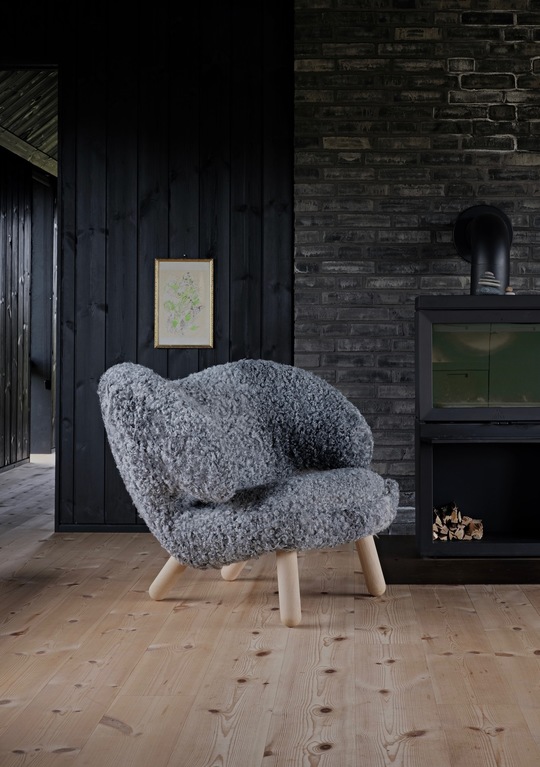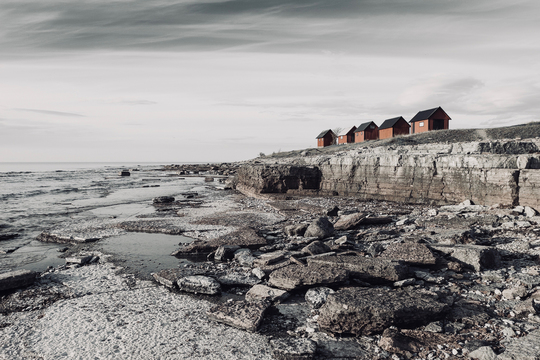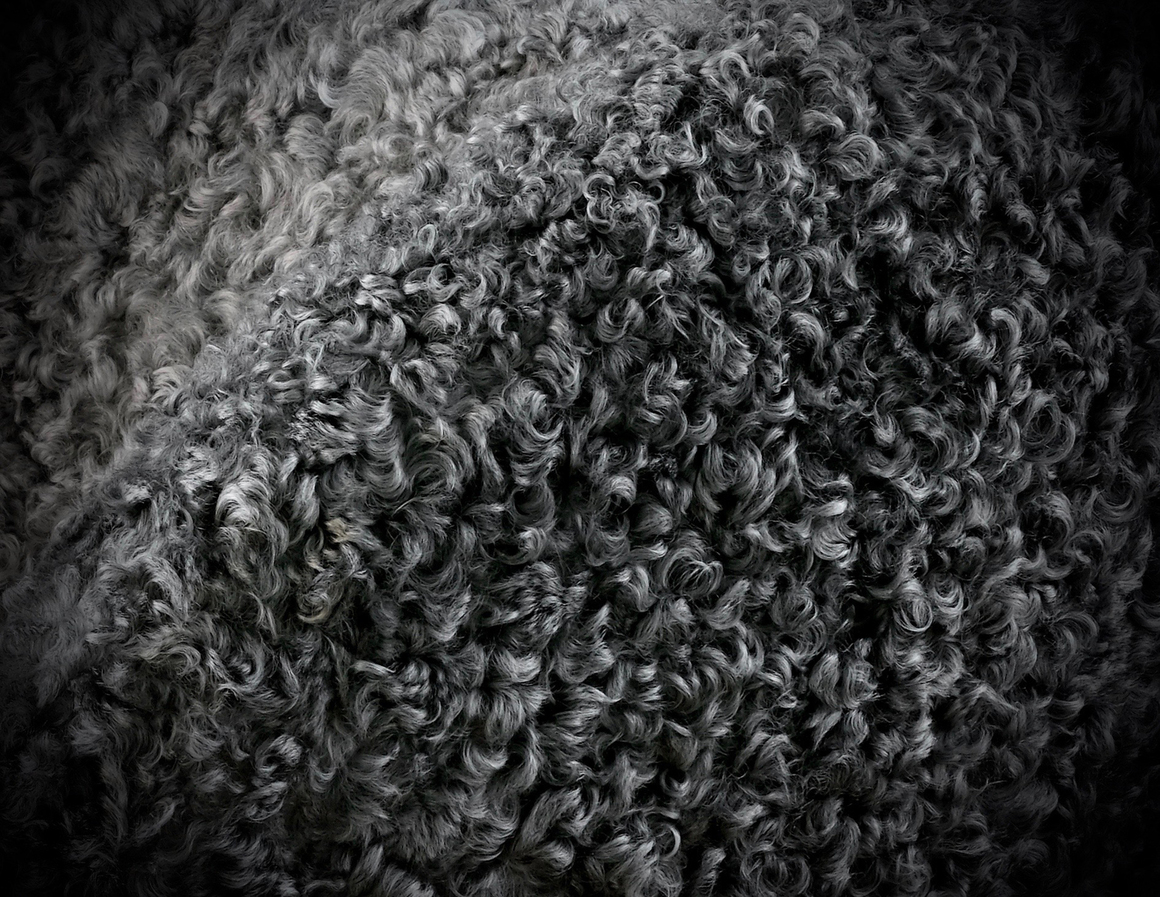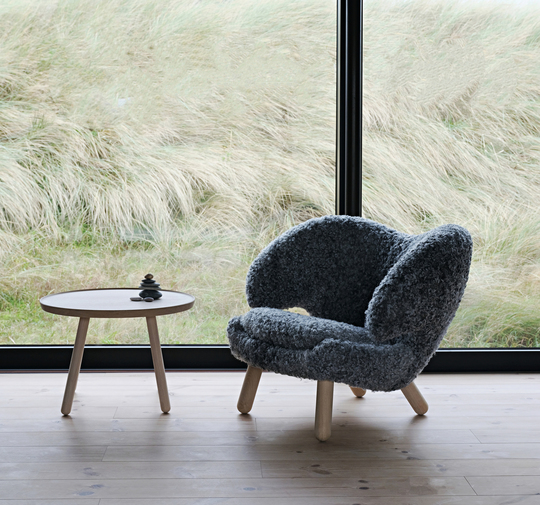When Finn Juhl’s Pelican Chair first saw the light of day at the Cabinetmakers’ Guild Exhibition in 1940, it was met with mixed reviews. The chair received nicknames such as “a punctured tennis ball” and “a tired walrus” and was not put into production. However, as time passed the Pelican chair took on a special place in the design literature domestically as well as internationally. As such, it did not go unnoticed once the chair was relaunched in 2001. Today, House of Finn Juhl celebrates the 80th anniversary of the chair that grasped the future and broke free from the Danish design tradition.

As a tribute to the Pelican Chair House of Finn Juhl is launching it in natural sheepskin from Gotland. This upholstery gives the chair an individual and unique expression, as the warmth of the sheepskin pleasantly underlines the character of the sculptural chair.

The new edition of the Pelican chair will be available from December 1st. Because the supply of sheepskin from Gotland is seasonal, the quantity for sale will be limited.

Authenticity for a Challenging Time
In a time where most of us spend significantly more time at home than we are used to, the residence must cater to more needs than ever before. This is not limited to practical matters. The home has become a place to retreat and merely “be”, making the term cocooning more relevant than ever before. The Pelican chair is often admired for its shape. It looks almost like a body embracing the body of the seated person. As goes for so many of Finn Juhl’s pieces, the Pelican generates a space within itself, which almost begs for immersion and closeness. This feeling is nothing but amplified when taking a seat in the soft sheepskin from Gotland. The combination between the shapes and the natural feel of the sheepskin invokes the feeling of a hug.
In addition to the demand for consoling interiors, we see people seeking authenticity, real value and quality that can withstand the test of time – in short, in challenging times we see people shying away from fleeting trends.
When House of Finn Juhl chose to relaunch the Pelican Chair, it was crucial that it was on the basis of Finn Juhl’s first prototype, his drawings and the original methods. To this day, the Pelican chair is still being manufactured in Denmark and is upholstered by hand – a traditional craft only mastered by a few very skilled upholsterers.
Upholstery Dictated by Nature
In the Baltic Sea, about 200 kilometers from Stockholm, you will find the Swedish island of Gotland. Sheep from Gotland are highly active and social animals which have adapted to the harsh climate of Scandinavia. They are hardy and robust, and they thrive especially well in vast areas where they contribute to biodiversity. Sheep from Gotland belong to the primitive species of the Nordics, namely the short-tailed sheep. Their defining trait is their significant grayish and curly coat.
From thick, almost rippled, to big and shiny soft curls. Each sheep is unique and not two are alike. By nature, the color of the skin can vary from light gray to dark gray with nuances of white and black. This means that each and every Pelican Chair will have a distinctive and individual expression, which pleasantly underlines the animalistic and characteristic nature of the chair.
Hans Henrik Sørensen, Partner and founder of House of Finn Juhl, elaborates:
“By now, the Pelican Chair has become renowned and coveted across the globe in white shearling, which is available all year. However, at House of Finn Juhl, we have long wished to employ an upholstery which brings even more uniqueness to the characteristic design. Ever since I traveled to the Swedish island of Gotland, and experienced the raw nature, and the grazing Gotland sheep, I have thought about this expression for the Pelican Chair.”

